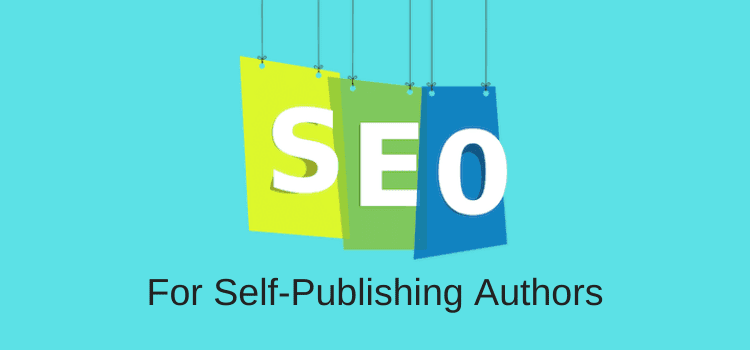
You don’t need to become an expert in Search Engine Optimization (SEO). However, some basic knowledge can help an author promote their books.
You don’t need to take years learning how to optimise content for the web.
However, keep in mind that millions of people use Google, Bing, and other search engines every day to find information and answers to questions they have.
With a bit of knowledge, you can improve the chances of your content appearing in search results.
People use search engines every day.
But they will never search for your author’s name or book title, except perhaps if they are close family or friends.
Attracting potential readers involves creating content that will interest them.
The primary function of SEO is to help you attract as many people as possible to your site or blog.
Hopefully, they will stay long enough to read your post or page and notice your book promotion widgets or buy links.
Search engines bring people to your site who have questions or are seeking information.
A static site or page only about your book or books will not gain search rankings.
Think about how you use search engines like Google.
You are usually looking for an answer or want information.
In essence, that’s what you want to achieve with your content.
It works best for blog articles
Creating content in a blog post can certainly bring site visitors if you post helpful information that is of value to readers.
In my case, my static author website gets very little visitor traffic at all.
But my blogs get tons of traffic, which helps my book marketing.
The reason is simple.
Readers can find many posts covering various writing and publishing topics, which is a good example of how authors can attract readers.
If you use Google Analytics or Google Search Console, you can track the most popular search terms that bring people to your site.
You will usually discover that the keywords you rank for are unrelated to your books.
In my case, the following were the top ten search terms for one week that people used to find one of my blogs.
a cat named Sloopy
apple freaks
what is register
errors and omissions accepted
absurd book names
difference between porcupine and echidna
how to be cool on the internet
cricket box
longest sentence
vampires
As you can see, none of these terms relates to my author’s name or book titles.
But the content brings thousands of potential book buyers to my personal blog.
It, of course, carries advertising for my books, which helps me sell them.
That’s the key benefit of using SEO.
Attracting new readers.
You only need the basics
There is one key SEO factor to concentrate on when writing your blog posts.
You need to make sure that your blog post title and the first paragraph in your article or post contain similar words or short phrases that define the topic.
It is sometimes called your target keyword or phrase.
You can also apply this to guest posts if you write on other blogs.
Take the example of one of the user search phrases above, what is register.
My post included the keywords register in English or English register, in the title, first subtitle, and first paragraph.
You can read the post on register in English to note my use of the keyword.
When search engines crawl a site, this is what they look for to ascertain what the text is about.
So search engines know that my post is about English register and rank it highly.
And that is SEO in a nutshell.
If you browse through some of my posts on this site, you will see a similar pattern of repeating a keyword or key phrase in the titles and first paragraph.
SEO is as easy as that
As a rule of thumb, all you need to do to get SEO working for you is use your keyword or key phrase twice.
Include it once in your title and once in the first paragraph. Then write content that will be worth reading.
But don’t repeat your keyword phrase more than two or three times. If you overuse it, it will be classed as keyword stuffing.
This can result in search engines failing to index your post.
A bonus is that search engines may find other related words and phrases in your blog posts.
If you write long articles of over 1,000 words, you have more chance of getting extra search keywords. Longer articles will also help reduce your bounce rate.
Because of this, it is better to publish long blog articles rather than quick 300-word posts.
If you have a lot of existing posts, you could think about combining some that are on a similar topic.
Then publish it as a new long post, and 301 redirect your old short posts to the new one.
What about book marketing?
There are lots of book marketing tips.
Sure, you need to blog, you need an Amazon Author Central page, you need to be on social media, and you need to advertise and promote your books.
But learning how to be a content writer and applying basic SEO is a quick, easy, and long-term way of improving the performance of your blog, and your book and content marketing.
All you need to do is come up with a good idea to write about.
After that, spend a little time on keyword research and then write great content for your readers.
Note: Do you have access to tools, such as Yoast or All In One SEO in WordPress? You can also repeat your keyword or key phrase in a separate SEO title and meta description. You can also use it in the alt text for an image.
Summary
SEO is changing from day to day, especially now with AI search. But the basics stay the same all the time.
Writing quality content that answers questions, offers sound advice, and is worth reading will always rank well on search engines.
You can learn how to use many on-page and off-page elements for SEO, which will certainly improve your SERP rankings.
But if you are new to SEO, don’t dig too deep into the technicalities.
All you really need to do is know what your keyword phrase is.
After using it in your title and once or twice in your text, write informative and easy-to-read content.
Yes, SEO for authors is that easy.
Related reading: Self-Help Books Have Huge SEO Advantages




very good
It does seem simple, so there is no reason not to get working on this! Thank you.
Great article with awesome tips! Thank you!